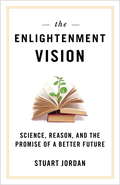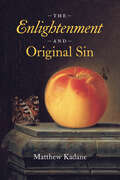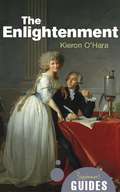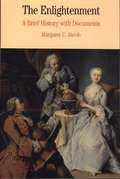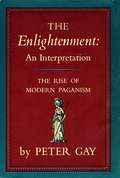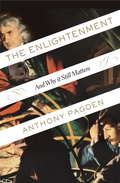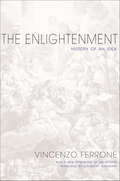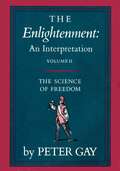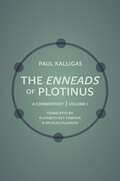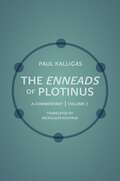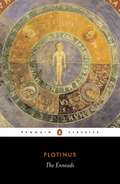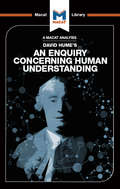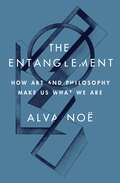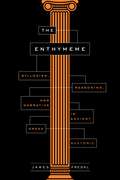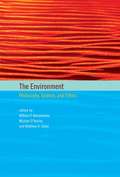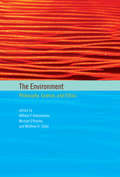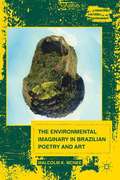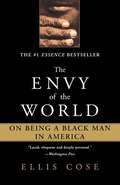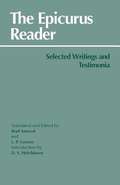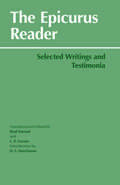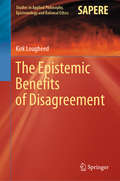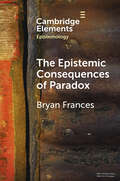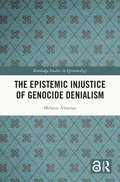- Table View
- List View
The Enlightenment Vision
by Stuart JordanIn the seventeenth and eighteenth centuries, a major cultural shift took place in western Europe. Leading thinkers began to emphasize the use of reason to tackle the challenges of material and social life, and they questioned the tenets of Christianity concerning the existence of God, the purpose of life, and the needs of the individual. Instead of religion, intellectuals put their faith in science and humanistic ethics in the hope of improving the secular lives of people everywhere. Today we call this development the Enlightenment. Contemporary society is the principal beneficiary of Enlightenment discoveries. This thought-provoking analysis evaluates the progress that global society has made since the Enlightenment. The author begins by pointing out features of present-day society that are the direct descendants of the Enlightenment's discoveries and advances: our technology, modern medicine, science-based worldview, democratic political institutions, and concepts of human rights are all an outgrowth of the pioneering efforts of Enlightenment reformers. But along with these benefits, the author notes that we are also the inheritors of some significant problems produced in the wake of these advances; overpopulation, nuclear proliferation, and global climate change are just some of the recent developments that seem to threaten the whole Enlightenment project. Other great concerns include the continuing economic disparity between prosperous and impoverished nations, the persistence of widespread ignorance, and destructive reactionary forces bent on provoking new conflicts. Despite these and other daunting challenges of the twenty-first century, the author concludes on a cautiously optimistic note, predicting that the Enlightenment vision of prosperity, security, justice, and good health for all will eventually be achieved.
The Enlightenment and Original Sin (The Life of Ideas)
by Matthew KadaneAn eloquent microhistory that argues for the centrality of the doctrine of original sin to the Enlightenment. What was the Enlightenment? This question has been endlessly debated. In The Enlightenment and Original Sin, historian Matthew Kadane advances the bold claim that the Enlightenment is best defined through what it set out to accomplish, which was nothing short of rethinking the meaning of human nature. Kadane argues that this project centered around the doctrine of original sin and, ultimately, its rejection, signaling the radical notion that an inherently flawed nature can be overcome by human means. Kadane explores this and other wide-ranging themes through the story of a previously unknown figure, Pentecost Barker, an eighteenth-century purser and wine merchant. By examining Barker’s personal diary and extensive correspondence with a Unitarian minister, Kadane tracks the transformation of Barker’s consciousness from a Puritan to an Enlightenment outlook, revealing through one man’s journey the large-scale shifts in self-understanding whose philosophical reverberations have shaped debates on human nature for centuries.
The Enlightenment: A Beginner's Guide (Beginner's Guides)
by Kieron O'HaraBlamed for the disasters of the 20th century: Auschwitz, globalisation, Islamic terrorism; heralded as the harbinger of reason, equality, and the end of arbitrary rule, the Enlightenment has been nothing if not divisive. To this day historians disagree over when, where, and what it was (and sometimes, still is). Kieron O'Hara brings to life the history, politics, science, religion, arts, and social life of the Enlightenment and shows how it spawned some of the brightest thinkers in the history of humankind, from the radical Rousseau to the conservative Burke. Dr Kieron O'Hara is a Senior Researcher at Southampton University, UK
The Enlightenment: A Brief History With Documents
by Margaret C. JacobIn an unusually diverse collection, Margaret Jacob presents the eighteenth-century movement known as the Enlightenment that forever changed the political, religious, and educational landscape of the day. Selections by some of the period's most important thinkers include pieces by Locke, Rousseau, Mary Wortley Montagu, Denis Diderot, and Moses Mendelssohn. She covers the movement's lengthy evolution in a comprehensive introduction, which establishes the issues central to understanding the documents and provides important background on the political and social debates of the period. All documents are preceded by headnotes, and the volume includes a chronology, 14 illustrations, a bibliography, and an index.
The Enlightenment: An Interpretation - The Rise of Modern Paganism (Enlightenment: An Interpretation #1)
by Peter GayThe eighteenth-century Enlightenment marks the beginning of the modern age, when the scientific method and belief in reason and progress came to hold sway over the Western world. In the twentieth century, however, the Enlightenment has often been judged harshly for its apparently simplistic optimism. Now a master historian goes back to the sources to give a fully rounded account of its true accomplishments.<P><P> Winner of the National Book Award
The Enlightenment: And Why It Still Matters
by Anthony PagdenOne of our most renowned and brilliant historians takes a fresh look at the revolutionary intellectual movement that laid the foundation for the modern world. Liberty and equality. Human rights. Freedom of thought and expression. Belief in reason and progress. The value of scientific inquiry. These are just some of the ideas that were conceived and developed during the Enlightenment, and which changed forever the intellectual landscape of the Western world. Spanning hundreds of years of history, Anthony Pagden traces the origins of this seminal movement, showing how Enlightenment concepts directly influenced modern culture, making possible a secular, tolerant, and, above all, cosmopolitan world. Everyone can agree on its impact. But in the end, just what was Enlightenment? A cohesive philosophical project? A discrete time period in the life of the mind when the superstitions of the past were overthrown and reason and equality came to the fore? Or an open-ended intellectual process, a way of looking at the world and the human condition, that continued long after the eighteenth century ended? To address these questions, Pagden introduces us to some of the unforgettable characters who defined the Enlightenment, including David Hume, the Scottish skeptic who advanced the idea of a universal "science of man"; François-Marie Arouet, better known to the world as Voltaire, the acerbic novelist and social critic who challenged the authority of the Catholic Church; and Immanuel Kant, the reclusive German philosopher for whom the triumph of a cosmopolitan world represented the final stage in mankind's evolution. Comprehensive in his analysis of this heterogeneous group of scholars and their lasting impact on the world, Pagden argues that Enlightenment ideas go beyond the "empire of reason" to involve the full recognition of the emotional ties that bind all human beings together. The "human science" developed by these eminent thinkers led to a universalizing vision of humanity, a bid to dissolve the barriers past generations had attempted to erect between the different cultures of the world. A clear and compelling explanation of the philosophical underpinnings of the modern world, The Enlightenment is a scintillating portrait of a period, a critical moment in history, and a revolution in thought that continues to this day.Advance praise for The Enlightenment "The Enlightenment really does still matter, and with a combination of gripping storytelling about colorful characters and lucid explanation of profound ideas, Anthony Pagden shows why."--Steven Pinker, author of The Better Angels of Our Nature and The Blank Slate "Reading Anthony Pagden's The Enlightenment: And Why It Still Matters is an enlightenment in itself. The larger-than-life thinkers and talkers of eighteenth-century Europe have been blamed for everything from taking the magic out of life to making Auschwitz possible, but here, in sparkling style, Pagden shows us not only how their ideas made mankind modern but also what our world might have been like without them. Everyone interested in where the West came from should read this book."--Ian Morris, author of Why the West Rules--For Now "Anthony Pagden defends the Enlightenment as a cosmopolitan project with classical roots and contemporary relevance. Like Kant, he argues that we live in an age of enlightenment, ongoing but incomplete, but that someday we will experience a fully enlightened age. His lucid and learned book might help to realize that hope."--David Armitage, author of Foundations of Modern International Thought
The Enlightenment: History of an Idea
by Vincenzo FerroneA compelling reevaluation of the Enlightenment from one of its leading historiansIn this concise and powerful book, one of the world's leading historians of the Enlightenment provides a bracing and clarifying new interpretation of this watershed period. Arguing that philosophical and historical interpretations of the era have long been hopelessly confused, Vincenzo Ferrone makes the case that it is only by separating these views and taking an approach grounded in social and cultural history that we can begin to grasp what the Enlightenment was—and why it is still relevant today. Ferrone explains why the Enlightenment was a profound and wide-ranging cultural revolution that reshaped Western identity, reformed politics through the invention of human rights, and redefined knowledge by creating a critical culture. These new ways of thinking gave birth to new values that spread throughout society and changed how everyday life was lived and understood. Featuring an illuminating afterword describing how his argument challenges the work of Anglophone interpreters including Jonathan Israel, The Enlightenment provides a fascinating reevaluation of the true nature and legacy of one of the most important and contested periods in Western history.The translation of this work has been funded by SEPS—Segretariato Europeo per le Pubblicazioni Scientifiche.
The Enlightenment: The Science of Freedom (Enlightenment: An Interpretation #2)
by Peter GayMr. Gay characterizes "The Recovery of Nerve" 18th century change of life to a safer more predictable lifestyle. In this book which is a social history of the Enlightenment, he describes the philosphes' environment, their view of progress, of science, of art, of society, and of politics.
The Enneads of Plotinus, Volume 1: A Commentary
by Paul KalligasThe first volume in a landmark commentary on an important and influential work of ancient philosophyThis is the first volume of a groundbreaking commentary on one of the most important works of ancient philosophy, the Enneads of Plotinus—a text that formed the basis of Neoplatonism and had a deep influence on early Christian thought and medieval and Renaissance philosophy. This volume covers the first three of the six Enneads, as well as Porphyry's Life of Plotinus, a document in which Plotinus’s student—the collector and arranger of the Enneads—introduces the philosopher and his work. A landmark contribution to modern Plotinus scholarship, Paul Kalligas’s commentary is the most detailed and extensive ever written for the whole of the Enneads.For each of the treatises in the first three Enneads, Kalligas provides a brief introduction that presents the philosophical background against which Plotinus’s contribution can be assessed; a synopsis giving the main lines and the articulation of the argument; and a running commentary placing Plotinus’s thought in its intellectual context and making evident the systematic association of its various parts with each other.
The Enneads of Plotinus: A Commentary | Volume 2
by Paul KalligasThe second volume in a landmark commentary on an important and influential work of ancient philosophyThis is the second volume of a groundbreaking commentary on one of the most important works of ancient philosophy, the Enneads of Plotinus—a text that formed the basis of Neoplatonism and had a deep influence on early Christian thought and medieval and Renaissance philosophy. This volume covers Enneads IV and V, which focus on two of the principal “hypostases” of Plotinus’s ontological system, namely the soul and the Intellect. Paul Kalligas provides an analytical exegesis of the arguments, along with an account of Plotinus’s principal sources, references to other parts of his work, and a systematic evaluation of his overarching theoretical aspirations. A landmark contribution to Plotinus scholarship, this is the most detailed and extensive commentary ever written for the whole of the Enneads.
The Enneads: Psychic And Physical Treatises, Comprising The Second And Third Enneads
by PlotinusRegarded as the founder of Neo-Platonism, Plotinus (AD 204-70) was the last great philosopher of antiquity, producing 0works that proved in many ways a precursor to Renaissance thought. Plotinus was convinced of the existence of a state of supreme perfection and argued powerfully that it was necessary to guide the human soul towards this state. Here he outlines his compelling belief in three increasingly perfect levels of existence - the Soul, the Intellect, and the One - and explains his conviction that humanity must strive to draw the soul towards spiritual transcendence. A fusion of Platonism, mystic passion and Aristotelian thought, The Enneads offers a highly original synthesis of early philosophical and religious beliefs, which powerfully influenced later Christian and Islamic theology.
The Enquiry for Human Understanding
by Michael O'SullivanDavid Hume’s 1748 Enquiry Concerning Human Understanding is a modern philosophical classic that helped reshape epistemology – the philosophy of knowledge. It is also a classic of the critical thinking skills of analysis and reasoning. Analysis is all about understanding how arguments work and fit together. Having strong analytical skills helps to break down arguments, pull out the evidence on which they rely, and understand the kinds of implicit assumptions and reasons on which they work. Reasoning, meanwhile, means building and presenting arguments, forming well-structured, evidenced, and organised cases for a particular point of view. Hume applied his analytical skills to arguments about how humans know and understand the world, and how our minds work. At base, he was trying to analyse human reason itself – to show the workings and limitations of the human mind, and show the origins of our beliefs. Hume went on to apply his reasoning skills, creating an enduring argument about the nature of human knowledge. The result was one of the most striking and famous works in the history of philosophy.
The Entanglement: How Art and Philosophy Make Us What We Are
by Alva NoëWhy human nature is an aesthetic phenomenon—and why we need art and philosophy to understand ourselvesIn The Entanglement, philosopher Alva Noë explores the inseparability of life, art, and philosophy, arguing that we have greatly underestimated what this entangled reality means for understanding human nature.Life supplies art with its raw materials, but art, Noë argues, remakes life by giving us resources to live differently. Our lives are permeated with the aesthetic. Indeed, human nature is an aesthetic phenomenon, and art—our most direct and authentic way of engaging the aesthetic—is the truest way of understanding ourselves. All this suggests that human nature is not a natural phenomenon. Neither biology, cognitive science, nor AI can tell a complete story of us, and we can no more pin ourselves down than we can fix or settle on the meaning of an artwork. Even more, art and philosophy are the means to set ourselves free, at least to some degree, from convention, habit, technology, culture, and even biology. In making these provocative claims, Noë explores examples of entanglement—in artworks and seeing, writing and speech, and choreography and dancing—and examines a range of scientific efforts to explain the human.Challenging the notions that art is a mere cultural curiosity and that philosophy has been outmoded by science, The Entanglement offers a new way of thinking about human nature, the limits of natural science in understanding the human, and the essential role of art and philosophy in trying to know ourselves.
The Enthymeme: Syllogism, Reasoning, and Narrative in Ancient Greek Rhetoric
by James FredalCentral to rhetorical theory, the enthymeme is most often defined as a truncated syllogism. Suppressing a premise that the audience already knows, this rhetorical device relies on the audience to fill in the missing information, thereby making the argument more persuasive. James Fredal argues that this view of the enthymeme is wrong. Presenting a new exegesis of Aristotle and classic texts of Attic oratory, Fredal shows that the standard reading of Aristotle’s enthymeme is inaccurate—and that Aristotle himself distorts what enthymemes are and how they work.From close analysis of the Rhetoric, Topics, and Analytics, Fredal finds that Aristotle’s enthymeme is, in fact, not syllogistic and is different from the enthymeme as it was used by Attic orators such as Lysias and Isaeus. Fredal argues that the enthymeme, as it was originally understood and used, is a technique of storytelling, primarily forensic storytelling, aimed at eliciting from the audience an inference about a narrative. According to Fredal, narrative rather than formal logic is the seedbed of the enthymeme and of rhetoric more broadly.The Enthymeme reassesses a fundamental doctrine of rhetorical instruction, clarifies the viewpoints of the tradition, and presents a new form of rhetoric for further study and use. This groundbreaking book will be welcomed by scholars and students of classical rhetoric, the history of rhetoric, and rhetorical theory as well as communications studies, classical studies, and classical philosophy.
The Enthymeme: Syllogism, Reasoning, and Narrative in Ancient Greek Rhetoric
by James FredalCentral to rhetorical theory, the enthymeme is most often defined as a truncated syllogism. Suppressing a premise that the audience already knows, this rhetorical device relies on the audience to fill in the missing information, thereby making the argument more persuasive. James Fredal argues that this view of the enthymeme is wrong. Presenting a new exegesis of Aristotle and classic texts of Attic oratory, Fredal shows that the standard reading of Aristotle’s enthymeme is inaccurate—and that Aristotle himself distorts what enthymemes are and how they work.From close analysis of the Rhetoric, Topics, and Analytics, Fredal finds that Aristotle’s enthymeme is, in fact, not syllogistic and is different from the enthymeme as it was used by Attic orators such as Lysias and Isaeus. Fredal argues that the enthymeme, as it was originally understood and used, is a technique of storytelling, primarily forensic storytelling, aimed at eliciting from the audience an inference about a narrative. According to Fredal, narrative rather than formal logic is the seedbed of the enthymeme and of rhetoric more broadly.The Enthymeme reassesses a fundamental doctrine of rhetorical instruction, clarifies the viewpoints of the tradition, and presents a new form of rhetoric for further study and use. This groundbreaking book will be welcomed by scholars and students of classical rhetoric, the history of rhetoric, and rhetorical theory as well as communications studies, classical studies, and classical philosophy.
The Environment
by Michael O'Rourke William P. Kabasenche Matthew H. SlaterPhilosophical reflections on the environment began with early philosophers' invocation of a cosmology that mixed natural and supernatural phenomena. Today, the central philosophical problem posed by the environment involves not what it can teach us about ourselves and our place in the cosmic order but rather how we can understand its workings in order to make better decisions about our own conduct regarding it. The resulting inquiry spans different areas of contemporary philosophy, many of which are represented by the fifteen original essays in this volume. The contributors first consider conceptual problems generated by rapid advances in biology and ecology, examining such topics as ecological communities, adaptation, and scientific consensus. The contributors then turn to epistemic and axiological issues, first considering philosophical aspects of environmental decision making and then assessing particular environmental policies (largely relating to climate change), including reparations, remediation, and nuclear power, from a normative perspective.
The Environment: Philosophy, Science, and Ethics (Topics in Contemporary Philosophy)
by Michael O'Rourke William P. Kabasenche Matthew H. SlaterOriginal essays by leading scholars consider the environment from biological and ethical perspectives.Philosophical reflections on the environment began with early philosophers' invocation of a cosmology that mixed natural and supernatural phenomena. Today, the central philosophical problem posed by the environment involves not what it can teach us about ourselves and our place in the cosmic order but rather how we can understand its workings in order to make better decisions about our own conduct regarding it. The resulting inquiry spans different areas of contemporary philosophy, many of which are represented by the fifteen original essays in this volume.The contributors first consider conceptual problems generated by rapid advances in biology and ecology, examining such topics as ecological communities, adaptation, and scientific consensus. The contributors then turn to epistemic and axiological issues, first considering philosophical aspects of environmental decision making and then assessing particular environmental policies (largely relating to climate change), including reparations, remediation, and nuclear power, from a normative perspective.ContributorsKatie McShane, Robert Brandon, Rachel Bryant, Michael Trestman, Brian Steverson, Denis Walsh, Lorraine Code, Jay Odenbaugh, Joseph Cannon, Mariam Thalos, Chrisoula Andreou, Clare Palmer, Ben Hale, Kristin Shrader-Frechette, Andrew Light
The Environmental Imaginary In Brazilian Poetry And Art
by Malcolm K. McneeThis study contributes to ongoing discussions on the connections between the environmental imaginary and issues of identity, place and nation. Utilizing a delimited ecocritical approach, McNee puts Brazilian culture, through the work of contemporary poets and visual artists, into a broader, transnational dialogue.
The Envy of the World
by Ellis CoseWith an eloquence and compassion reminiscent of James Baldwin's Letter to My Nephew, Ellis Cose presents a frank and realistic examination of the daunting challenges facing black men in twenty-first-century America and offers a way out of the cycle of defeatism and despair that wreaks havoc on America's black communities. Black men have never had more opportunity for success than they do today. Yet, as Ellis Cose bluntly puts it, "We are watching the largest group of black males in history stumbling through life with a ball and chain wrapped around their legs. If brought together in one incorporated region, the population of black males behind bars would instantly become the twelfth largest urban area in America." Add to that the ravages of AIDS, murder, poverty, and illiteracy, the raging anger between many black men and women, and the widening gap separating the black elite from the so-called underclass, and you have a prescription for a paralyzing pessimism. But even as he acknowledges the systemic obstacles that confront black men of all social strata, Ellis Cose refuses to accept them as reasons for giving up or giving in. In powerful and stirring prose, Cose rails against the historical worldview that has categorized academic achievement as a source of shame instead of pride in many black communities; he also outlines steps black males can take to enhance their odds for success. With insightful anecdotes about a broad range of black men -- from Franklin Raines, the first black man to run a Fortune 500 company, to unlettered ex-prisoners -- Cose documents the amazing journey the black race has made, and contemplates the challenges ahead. Both a warning of the vast social tragedy that is wasted black potential and a vital call to arms that can enable black men to reclaim their destiny, The Envy of the World is an honest and important book for anyone concerned about the future of America.
The Epicurus Reader: Selected Writings and Testimonia
by Brad Inwood D. S. Hutchinson Epicurus L. P. GersonTABLE OF CONTENTS: Introduction The ancient biography of Epicurus The extant letters Ancient collections of maxims Doxographical reports The testimony of Cicero The testimony of Lucretius The polemic of Plutarch Short fragments and testimonia from known works: * From On Nature * From the Puzzles * From On the Goal * From the Symposium * From Against Theophrastus * Fragments of Epicurus' letters Short fragments and testimonia from uncertain works: * Logic and epistemology * Physics and theology * Ethics Index
The Epicurus Reader: Selected Writings and Testimonia
by Brad Inwood Epicurus Lloyd P. GersonTABLE OF CONTENTS:Introduction The ancient biography of Epicurus The extant letters Ancient collections of maxims Doxographical reports The testimony of Cicero The testimony of Lucretius The polemic of PlutarchShort fragments and testimonia from known works: * From On Nature * From the Puzzles * From On the Goal * From the Symposium * From Against Theophrastus * Fragments of Epicurus' lettersShort fragments and testimonia from uncertain works: * Logic and epistemology * Physics and theology * EthicsIndex
The Epistemic Benefits of Disagreement (Studies in Applied Philosophy, Epistemology and Rational Ethics #51)
by Kirk LougheedThis book presents an original discussion and analysis of epistemic peer disagreement. It reviews a wide range of cases from the literature, and extends the definition of epistemic peerhood with respect to the current one, to account for the actual variability found in real-world examples. The book offers a number of arguments supporting the variability in the nature and in the range of disagreements, and outlines the main benefits of disagreement among peers i.e. what the author calls the benefits to inquiry argument.
The Epistemic Consequences of Paradox (Elements in Epistemology)
by Bryan FrancesBy pooling together exhaustive analyses of certain philosophical paradoxes, we can prove a series of fascinating results regarding philosophical progress, agreement on substantive philosophical claims, knockdown arguments in philosophy, the wisdom of philosophical belief (quite rare, because the knockdown arguments show that we philosophers have been wildly wrong about language, logic, truth, or ordinary empirical matters), the epistemic status of metaphysics, and the power of philosophy to refute common sense. As examples, this Element examines the Sorites Paradox, the Liar Paradox, and the Problem of the Many – although many other paradoxes can do the trick too.
The Epistemic Dimensions of Ignorance
by Rik Peels Martijn BlaauwIgnorance is a neglected issue in philosophy. This is surprising for, contrary to what one might expect, it is not clear what ignorance is. Some philosophers say or assume that it is a lack of knowledge, whereas others claim or presuppose that it is an absence of true belief. What is one ignorant of when one is ignorant? What kinds of ignorance are there? This neglect is also remarkable because ignorance plays a crucial role in all sorts of controversial societal issues. Ignorance is often thought to be a moral and legal excuse; it is a core concept in medical ethics and debates about privacy, and it features in religious traditions and debates about belief in God. This book does not only study an epistemic phenomenon that is interesting in itself, but also provides important tools that can be fruitfully used in debates within and beyond philosophy.
The Epistemic Injustice of Genocide Denialism (Routledge Studies in Epistemology)
by Melanie AltanianThe injustice of genocide denial is commonly understood as a violation of the dignity of victims, survivors, and their descendants, and further described as an assault on truth and memory. This book rethinks the normative relationship between dignity, truth, and memory in relation to genocide denial by adopting the framework of epistemic injustice.This framework performs two functions. First, it introduces constructive normative vocabulary into genocide scholarship through which we can gain a better understanding of the normative impacts of genocide denial when it is institutionalized and systematic. Second, it develops and enriches current scholarship on epistemic injustice with a further, underexplored case study. Genocide denialism is relevant for political and social epistemology, as it presents a substantive epistemic practice that distorts normativity and social reality in ways that maintain domination. This generates pervasive ignorance that makes denial rather than recognition of genocide appear as the morally and epistemically right thing to do. By focusing on the prominent case of Turkey’s denialism of the Armenian genocide, the book shows the serious consequences of this kind of epistemic injustice for the victim group and society as a whole.The Epistemic Injustice of Genocide Denialism will appeal to students and scholars working in social, political, and applied epistemology, social and political philosophy, genocide studies, Armenian studies, and memory studies.The Open Access version of this book, available at www.taylorfrancis.com, has been made available under a Creative Commons Attribution-Non Commercial-No Derivatives (CC-BY-NC-ND) 4.0 license. Any third party material in this book is not included in the OA Creative Commons license, unless indicated otherwise in a credit line to the material. Please direct any permissions enquiries to the original rightsholder.Funded by: Swiss National Science Foundation
